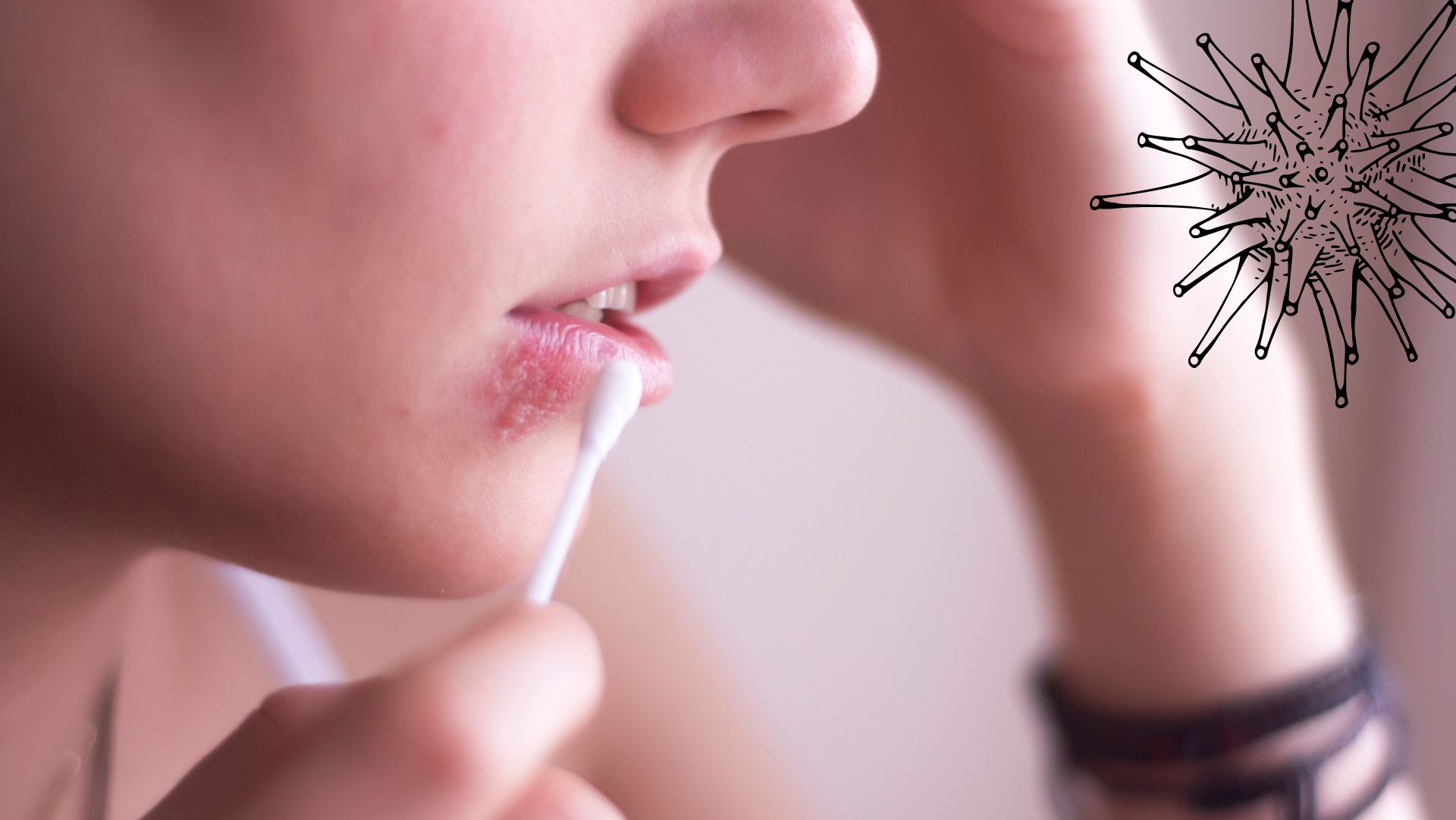Understanding Herpes: Shedding Light on the Uninvited Guest. In infectious diseases, few adversaries are as ubiquitous and enigmatic as the herpes virus. Often perceived as a mere inconvenience, its manifestations as a “cold on the lips” can belie its potential for deeper health implications. Yet, despite its prevalence, the intricacies of herpes infections remain shrouded in mystery for many. In this comprehensive exploration, we embark on a journey to unravel the complexities of this multifaceted virus, shedding light on its origins, manifestations, and management strategies.
Unveiling the Hidden Intruder Herpes:
Herpes virus type I, the primary culprit behind cold sores, establishes its stronghold within the cranial cavity, particularly in the trigeminal ganglion. Its counterpart, type II, lurks within the sacral plexus, manifesting as genital herpes—a condition often exacerbated by factors such as sexual contact and compromised immunity. Additionally, type III, responsible for chickenpox, may resurface as herpes zoster later in life, posing further challenges to immune defenses.
 Deciphering the Triggers:
Deciphering the Triggers:
Understanding the triggers of herpes outbreaks is paramount in devising effective prevention and management strategies. From immune suppression to hormonal fluctuations and skin trauma, a myriad of factors can awaken the dormant virus, unleashing its symptomatic fury upon unsuspecting hosts. By identifying and mitigating these triggers, individuals can proactively safeguard their health and minimize the risk of recurrent infections.
Navigating Prevention and Treatment:
While there is no panacea for herpes infections, a multifaceted approach to prevention and treatment can significantly mitigate their impact. Practical measures like meticulous hand hygiene and personal care practices serve as the first defense against viral transmission. Additionally, supporting overall health and immune function through balanced nutrition, adequate hydration, and stress management can bolster the body’s natural defenses against viral incursions.
Treatment options range from antiviral medications to topical ointments and probiotics. These interventions aim not only to alleviate symptoms but also to suppress viral replication and reduce the frequency of outbreaks. Furthermore, dietary modifications, such as reducing the consumption of inflammatory foods and incorporating immune-boosting nutrients, may complement medical interventions in managing herpes infections.
Embracing a Holistic Approach:
Beyond conventional medicine, holistic approaches to herpes management offer promise in addressing the multifaceted nature of viral infections. From herbal remedies and dietary supplements to stress-reducing practices like meditation and yoga, a holistic approach seeks to harmonize mind, body, and spirit in the fight against herpes.
Natural remedies and lifestyle adjustments can complement medical treatments in managing herpes infections. Here are some natural approaches that may help fight against herpes:
- Lysine:
Lysine is an essential amino acid that may help suppress herpes virus replication. Foods high in lysine include fish, poultry, dairy products, legumes, and certain fruits and vegetables. - Lemon balm:
Lemon balm, a member of the mint family, has antiviral properties and may help reduce the duration and severity of herpes outbreaks. It can be applied topically as a cream or ointment or taken orally as tea or supplements. - Propolis:
Propolis, a resinous substance bees produce, has antiviral and immune-stimulating properties. It can be applied topically to herpes lesions to help promote healing. - Echinacea:
Echinacea is an herb known for its immune-boosting properties. It may help strengthen the immune system’s response to viral infections, including herpes. - Aloe vera:
Aloe vera gel has soothing and anti-inflammatory properties, which can help relieve discomfort and promote healing of herpes lesions when applied topically. - Coconut oil:
Coconut oil contains lauric acid, which has antiviral properties. Applying coconut oil topically to herpes lesions may help reduce inflammation and promote healing. - Stress reduction:
Stress can weaken the immune system and trigger herpes outbreaks. Stress-reduction techniques such as meditation, deep breathing exercises, yoga, and mindfulness can help manage stress levels and reduce the frequency of outbreaks.
While these natural remedies may help manage herpes symptoms and reduce the frequency of outbreaks, it’s essential to consult with a healthcare professional before trying any new treatments, especially if you are pregnant, breastfeeding, or taking medications. Additionally, it’s important to continue following your healthcare provider’s recommendations for managing herpes infections, including taking antiviral medications as prescribed.
 The Role of Healthy Nutrition:
The Role of Healthy Nutrition:
Central to the prevention and management of herpes infections is the role of nutrition. A diet rich in immune-boosting nutrients, such as vitamin C, zinc, and antioxidants, can fortify the body’s defenses against viral incursions. Incorporating foods known for their antiviral properties, such as garlic, ginger, and citrus fruits, can help reduce the frequency and severity of outbreaks. Furthermore, maintaining a balanced diet with plenty of fruits, vegetables, lean proteins, and whole grains can support overall health and immune function, providing a solid foundation for herpes management.
Conclusion:
In the battle against herpes, knowledge is our most potent weapon. By unraveling the complexities of this persistent virus and embracing proactive prevention and treatment strategies, we empower ourselves to navigate its challenges with resilience and fortitude. Through education, awareness, and a commitment to holistic well-being—including a focus on nutritious foods—we can relegate herpes infections to manageable nuisances, allowing us to reclaim control of our health and vitality. Conclusion:
By understanding the complexities of herpes infections and adopting preventive measures, we can mitigate the impact of this persistent virus on our health and well-being. By prioritizing hygiene, immune support, and healthy lifestyle choices, we can minimize the frequency and severity of outbreaks, allowing us to live fuller, healthier lives.
#HerpesAwareness #HolisticHealth #ImmuneSupport #NaturalRemedies #WellnessJourney



 Deciphering the Triggers:
Deciphering the Triggers: The Role of Healthy Nutrition:
The Role of Healthy Nutrition: